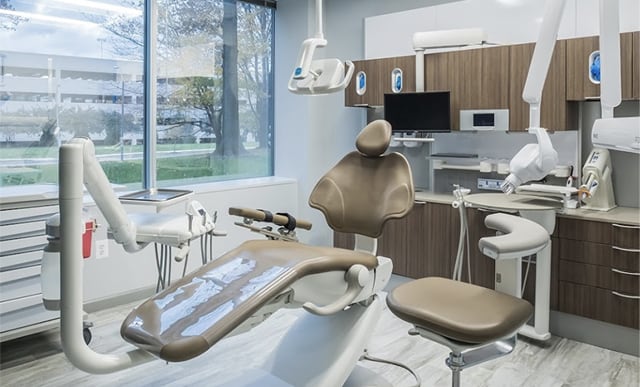
Unfortunately, sometimes tooth extractions are necessary due to severe decay, injury, extreme pain, or other factors. If you have a damaged or decayed tooth that can’t be saved with a root canal, our dentist may suggest getting an extraction. We can extract teeth quickly and efficiently with minimum discomfort. We also offer an array of sedation dentistry techniques to help you feel completely relaxed during the treatment. In addition to the tooth extraction, a socket graft procedure, which adds a layer of grafted bone in the area where the tooth was removed, may be recommended to help prepare your gums for a dental implant, if desired.
Both of our dentists are extremely qualified at performing tooth extractions and will carefully examine your mouth during your consultation before making a recommendation. If an extraction is required, our dentists will develop a personalized treatment plan with a variety of possible tooth replacement options that can give you beautiful, natural-looking teeth. We will be happy to answer all your questions and explain each step of the process.
Explore Topics On This Page
What Does the Tooth Extraction Process Entail?
Your dentist will start the tooth extraction process with a thorough oral examination and ask questions about your previous medical history. Please let us know if you take medications or have issues with excessive bleeding.
For the first 24 hours after the tooth extraction we advise you to consume a soft diet and not to use straws, spit, rinse, smoke, drink alcohol, or eat very hot food. Following these instructions, along with using ice and medication, can help your empty gum socket heal. If you notice your gum socket is dry, please contact our office for further instructions. Our dentists recommend that you rinse your mouth gently with saltwater 24 hours after your extraction. You should also be able to return to your usual oral hygiene routine at that time; however, you should avoid the empty socket and the adjacent teeth until the area has had time to heal.
For more information about tooth extraction or to schedule an appointment, please contact Bethesda Sedation Dentistry today.


